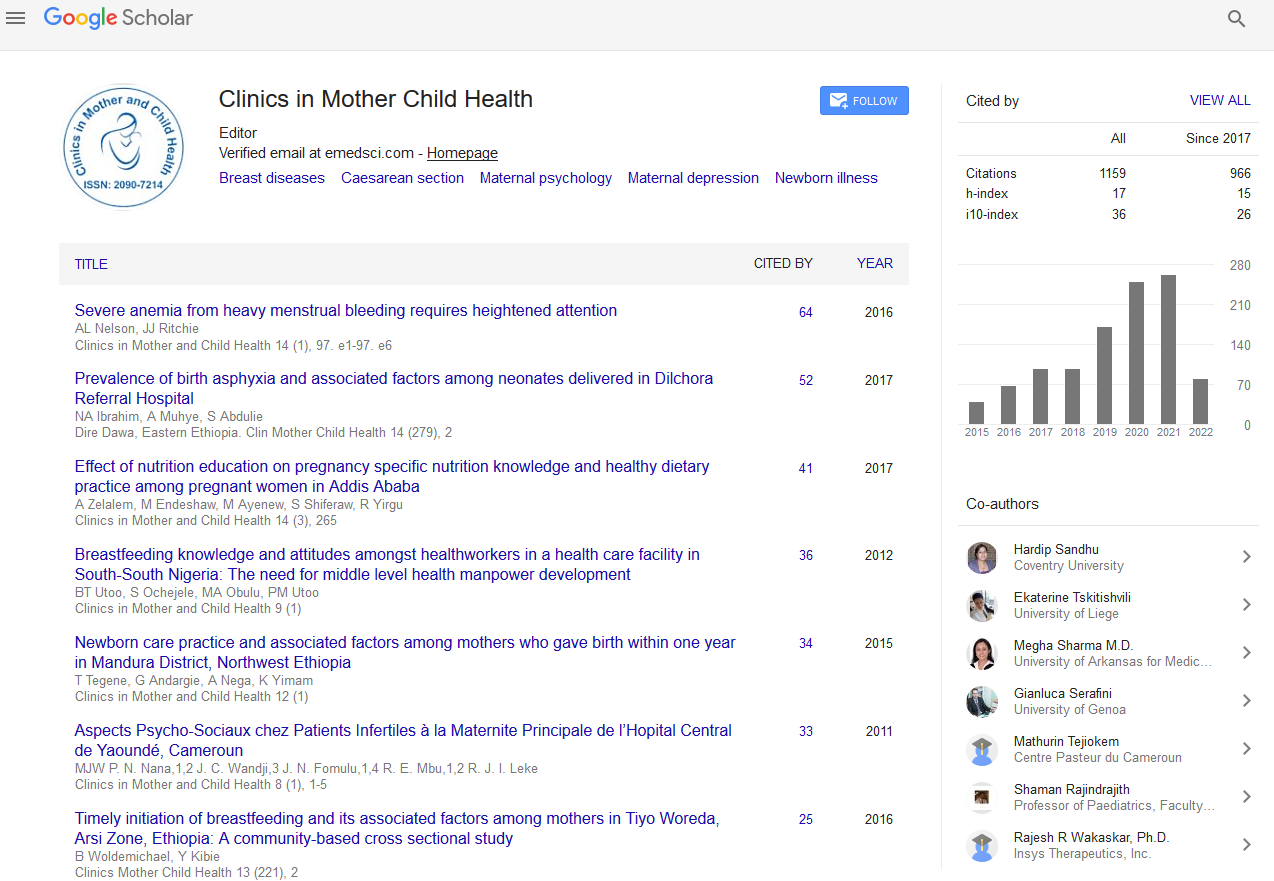Indexed In
- Genamics JournalSeek
- RefSeek
- Hamdard University
- EBSCO A-Z
- Publons
- Geneva Foundation for Medical Education and Research
- Euro Pub
- Google Scholar
Useful Links
Share This Page
Journal Flyer

Open Access Journals
- Agri and Aquaculture
- Biochemistry
- Bioinformatics & Systems Biology
- Business & Management
- Chemistry
- Clinical Sciences
- Engineering
- Food & Nutrition
- General Science
- Genetics & Molecular Biology
- Immunology & Microbiology
- Medical Sciences
- Neuroscience & Psychology
- Nursing & Health Care
- Pharmaceutical Sciences
The importance of diagnosing hereditary epilepsy: EAST/SeSAME syndrome
28th World Congress on Neonatology & Diagnosis
December 06-07, 2018 | Amsterdam, Netherlands
Marta Celmina
Childrens Clinical University Hospital, Latvia
University of Latvia, Latvia
Scientific Tracks Abstracts: Clinics Mother Child Health
Abstract:
EAST (epilepsy, ataxia, sensorineural deafness, tubulopathy) or SeSAME (seizures, sensorineural deafness, ataxia, mental retardation, and electrolyte imbalance) syndrome is a rare autosomal recessive syndrome first described in 2009 independently by Bockenhauer and Scholl. It is caused by mutations in KCNJ10, which encodes Kir4.1, an inwardly rectifying K+ channel found in the brain, inner ear, kidney and eye. To date, 16 mutations and at least 28 patients (plus four new Latvian patients) have been reported. Seizures are generally the initial presentation and start in infancy. Ataxia is a prominent feature evident from, when the affected individuals learn to walk. Although hearing loss in the majority of cases has been reported as stable, all our patients demonstrate advancement of hearing loss. This is especially important considering that deafness might delay language development and mimic intellectual disability. From a renal aspect, EAST/ SeSAME syndrome is similar to Gitelman and Bartter syndromes with hypokalemia, metabolic alkalosis, hypomagnesemia, hyponatremia, hypochloremia, elevated plasma renin and aldosterone. The treatment is based on antiepileptic drugs, electrolyte replacement, hearing aids and mobility devices. Future research should concentrate on recognizing the lesions in the central nervous system to evaluate new potential diagnostic criteria and on formally evaluating intellectual disability. A possible genetic cause for epilepsy (as the presenting symptom), especially in combination with other symptoms, should always be considered. Early recognition of this multisymptomatic syndrome may improve the outcome in terms of electrolyte imbalance, hearing impairment and therefore, overall development.
Biography :
Marta Celmina finished Riga Stradins University in 2014. She is a Pediatric Resident of University of Latvia and also works in the Center of Epilepsy and Sleep Medicine (Clinical University Hospital in Riga, Latvia). She has three publications in reputed journals and is currently working on several research projects
E-mail: marta.celmina@gmail.com


